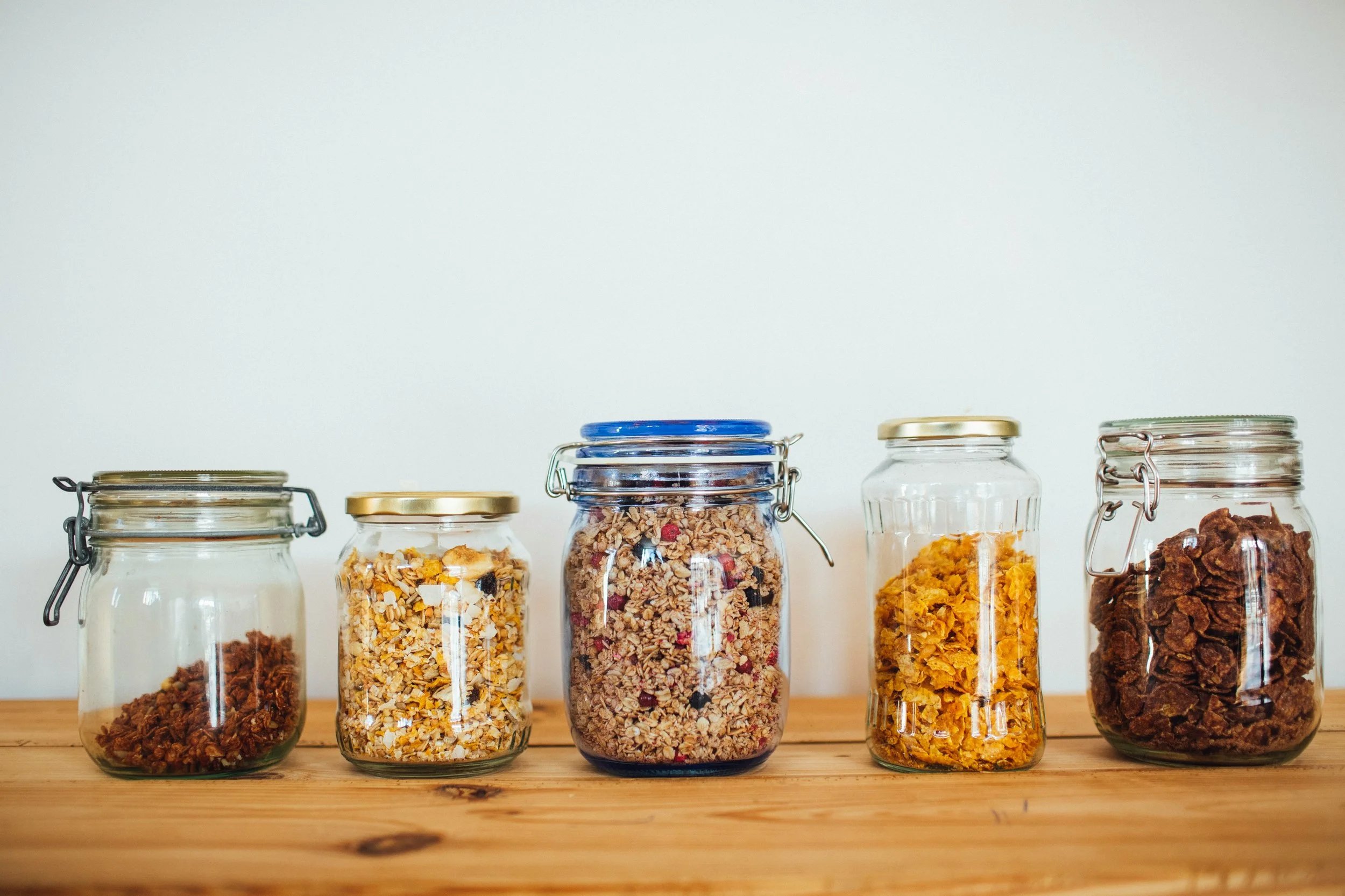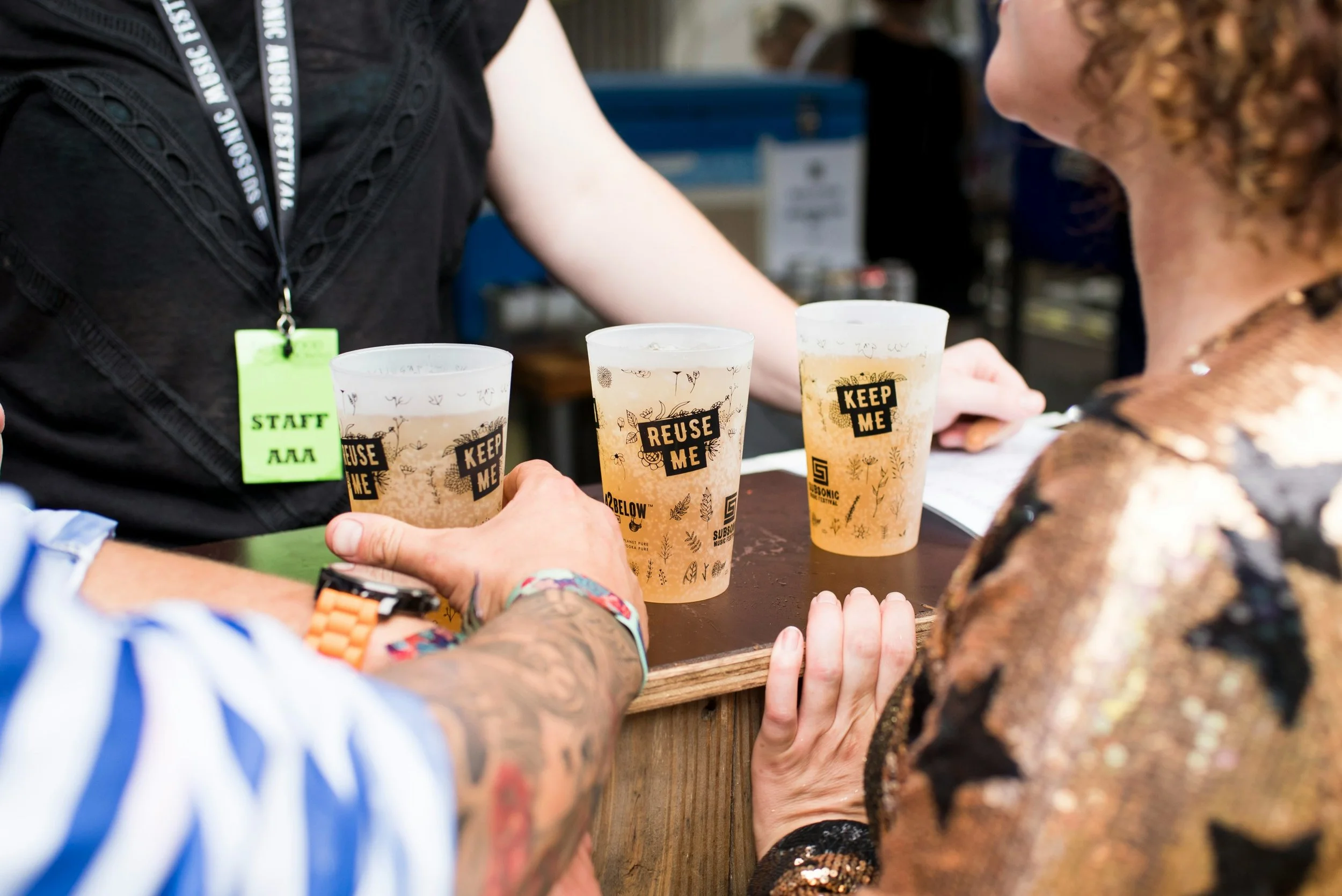It’s Time We Rethought Rubbish
The Bin is Not a Black Hole
It’s not a magical portal where waste goes to die. It ends up in landfill, waterways, or incinerators. And with Australia’s recycling systems and infrastructure still patchy at best, relying on recycling alone to be the solution just isn’t sustainable.
Waste fuels pollution, carbon emissions, biodiversity loss, and resource depletion — and plays a significant role in accelerating climate change and undermining our efforts to stop it.
Sure, some waste is forced on us (looking at you, unsolicited flyers in the mailbox). But that doesn’t mean there’s nothing we can do about it. Saying no to these things, even when they’re already offered, can help shift what we collectively expect from businesses, and change their operation towards being more sustainable and circular.
Then there’s the waste we can control:
Multiple takeaway meals a week
Individually packaged everything
Impulse online shopping that could’ve been bought locally
We’re not here to shame your Friday night Pad Thai. But once you start noticing how much waste comes from autopilot decisions, you’ll realise just how many of them are within your control — and how small shifts, made consistently, can add up to a much bigger impact over time.
Let’s get one thing straight, this isn’t just an article telling you to recycle more. Don’t get us wrong, we love recycling! It’s great. But if we’re going to take the waste crisis seriously, we need to go straight to the source: the way we consume.
The (uncomfortable) truth is that most of us are addicted to convenience. We’re generally quite happy to grab a takeaway coffee, accept a plastic fork without thinking, or buy pre-packaged veggies to save a few minutes. And while the plastics crisis can’t be solved by individuals alone (we need systemic change for that), we’ve become very good at prioritising comfort over sustainability.
We create waste without even realising it, then send it off to the bin and wipe our hands clean. Out of sight, out of mind, right? Wrong. Here’s why that mindset has to shift, and how to start making smarter, cleaner choices.
How To Create Less Waste
We’re all about small and more intentional shifts to mindful consumption. It can start with simply asking yourself ‘Do I really need this?’ before making a purchase, and if you do, considering if there’s a more sustainable (and affordable) option you could go for.
Tips for People
There’s a lot you can do without dramatically overhauling your life. Things like:
Bringing your own cup or container when grabbing food or drinks
Choosing unpackaged produce, and prioritising shopping in places that support this
Saying no to freebies or packaging you don’t actually want
Repairing instead of replacing
Sharing, borrowing, or renting instead of buying new
Being mindful about food waste, and planning your meals to minimise it
Giving yourself a thinking period before making a purchase online
Tips for Businesses
If you run a business, your potential to reduce waste goes beyond your own bin. The choices you make affect suppliers, staff, customers, and the culture you create around consumption. Less waste in the first place often means lower costs, too, so these strategies could actually save you money.
Here are a few places to start:
Do a waste audit. Before you make changes, take stock. What’s being thrown out most? Is it packaging, food, paper, coffee cups? A simple audit can highlight your biggest problem areas and show you exactly where you can make the biggest difference.
Rethink what you buy and who you work with. Opt for suppliers that use minimal or recyclable packaging. Buy in bulk and avoid over-ordering.
Make producing less waste at work easier. Encourage staff to bring reusable containers or cups, and set up your kitchen to make low-waste choices easy.
Reduce single use plastics. Can your workplace run without plastic cutlery, individually wrapped snacks, or disposable coffee cups? Probably. Swap them for reusable alternatives and make it easy for your team to get on board.
Take Responsibility Beyond the Bin
Waste is tied into the systems we participate in every day. What we choose to buy, accept, or refuse sends a message. And, demand drives supply — so the more we collectively choose low-waste options, the more likely businesses are to offer them.
It’s easy to think individual actions don’t matter while big mass corporations are pumping out waste like there’s no tomorrow. But the choices we make shape behaviours, influence culture, and create ripple effects. And when enough of us make more conscious choices, those small actions start to influence the system itself. Very simple but very true.
A great place to start is thinking about the waste you create and the materials you bring into your home or workplace. What’s ending up in the bin each week? Could you swap, reuse, repair, or avoid it altogether next time?
No one’s perfect (yes, even us, as much as it pains us to admit it). But doing something is way better than doing nothing. And, quite frankly, doing nothing is what got us into this mess to begin with.


